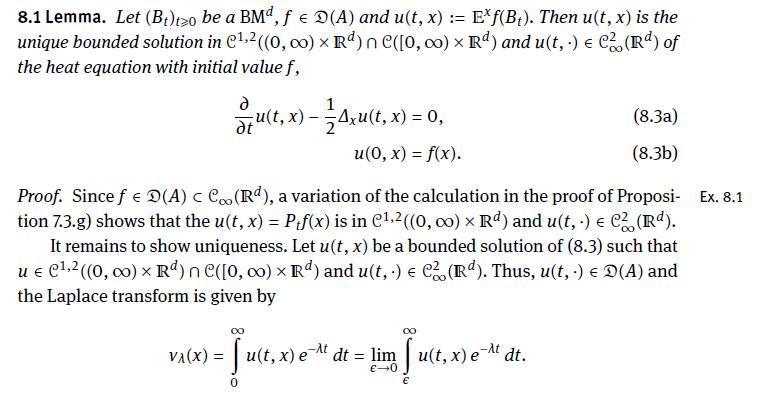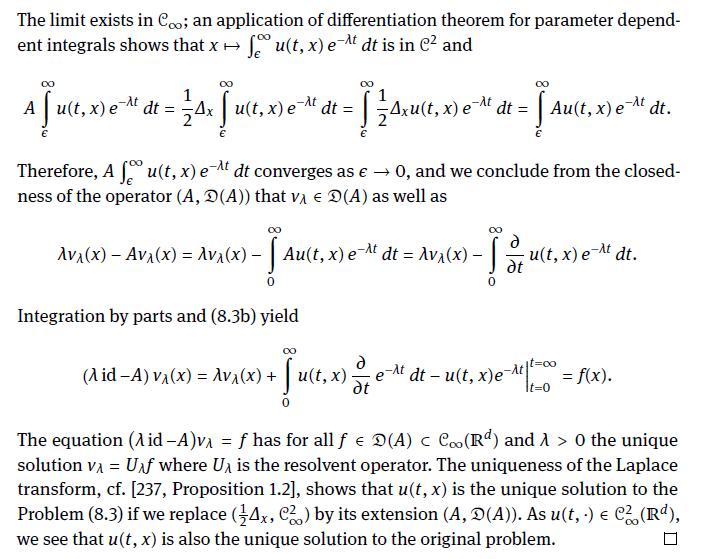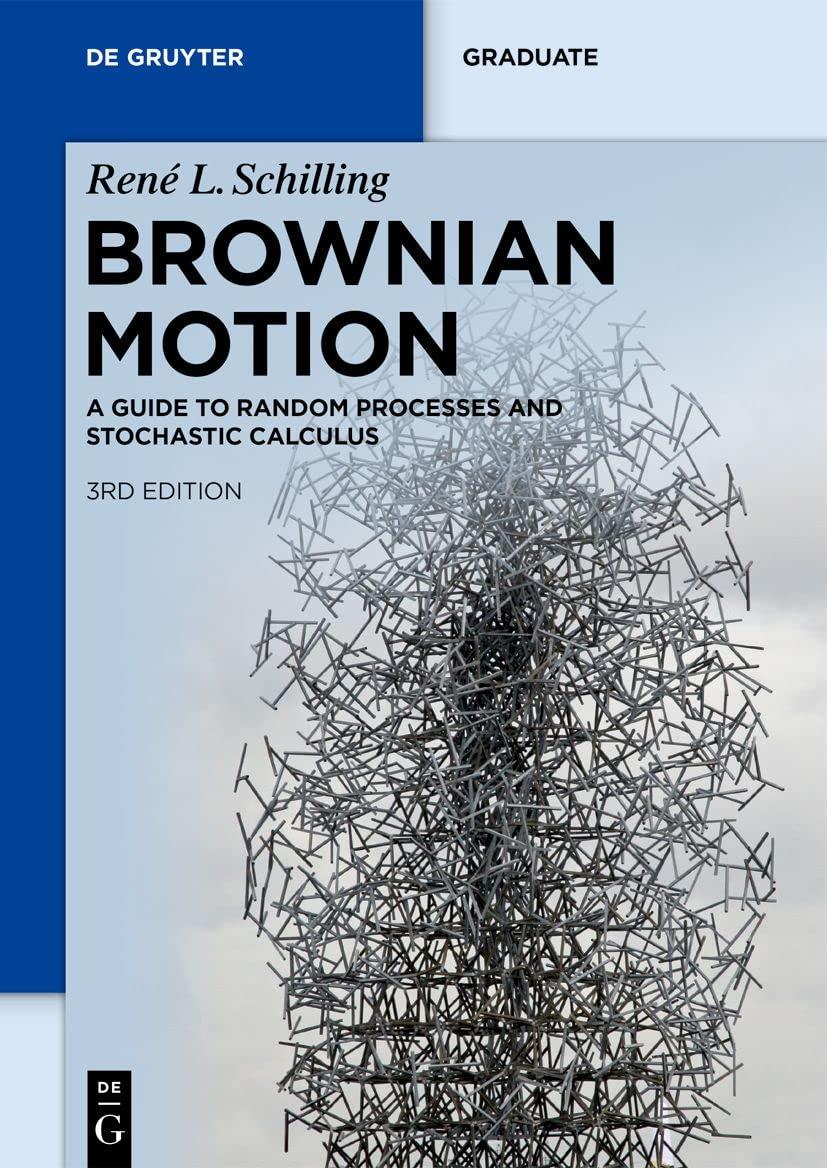Let (f) be the initial value in the problem considered in Lemma 8.1 and write (u(t, x):=)
Question:
Let \(f\) be the initial value in the problem considered in Lemma 8.1 and write \(u(t, x):=\) \(P_{t} f(x)=\mathbb{E} f\left(B_{t}+x\right)\) where \(\left(B_{t}\right)_{t \geqslant 0}\) is a BM \({ }^{d}\).
a) Assume that \(f \in \mathcal{C}_{\infty}\left(\mathbb{R}^{d}\right)\). Show that \(\partial_{t} u(t, x), \partial_{j} u(t, x)\) and \(\partial_{j} \partial_{k} u(t, x)\) exist and are functions in \(\mathcal{C}\left((0, \infty) \times \mathbb{R}^{d}\right)\).
b) Assume that \(f: \mathbb{R}^{d} \rightarrow \mathbb{R}\) is measurable and exponentially bounded, i.e. \(|f(x)| \leqslant C e^{C|x|}\) for all \(x \in \mathbb{R}^{d}\) and some constant \(C\). Show that \(\partial_{t} u(t, x), \partial_{j} u(t, x)\) and \(\partial_{j} \partial_{k} u(t, x), j, k=1, \ldots, d\), exist and are exponentially bounded functions in \(\mathcal{C}\left((0, \infty) \times \mathbb{R}^{d}\right)\).
c) What happens, if we assume in Part b) that \(f(x) \leqslant C e^{C|x|^{2}}\) ?
Data From Lemma 8.1


Step by Step Answer:

Brownian Motion A Guide To Random Processes And Stochastic Calculus De Gruyter Textbook
ISBN: 9783110741254
3rd Edition
Authors: René L. Schilling, Björn Böttcher





